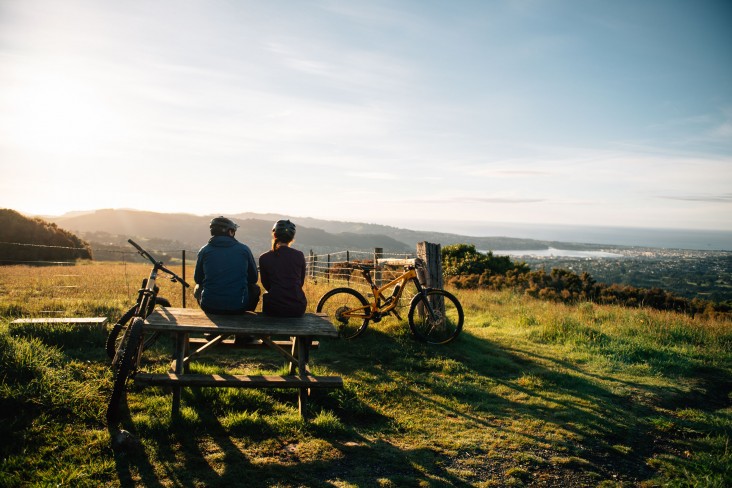We are focused on delivering a more equitable, inclusive and people-focused mental health and addiction system that supports people to be well in the community.
Our implementation programme focuses on the themes and main findings of Time for Change - Te Hurihanga, and has identified a series of core projects. Find more out about the projects and their progress below.
Project progress
Establishing contemporary options to support tāngata whaiora with high and complex needs
Built in 1953, the infrastructure of some of the inpatient facilities at Wakari Hospital no longer supports the delivery of contemporary inpatient mental health practice. As a priority, the Time for Change - Te Hurihanga review recommended the Southern DHB signal the eventual closure of Ward 11, a 16-bed clinical rehabilitation unit.
Te Whatu Ora Southern announced Comcare Trust as the new provider on 1 December 2022 to develop and provide community intensive support services, including housing to enable people to move out of hospital. The new service will provide services that are flexible and tailored to the needs of individuals.
The first whaiora/patient transitioned into the new service in June 2023.
Increasing Dunedin mental health crisis respite care capacity
Dunedin’s capacity for emergency mental health respite was increased in September 2022, with the opening of a five-bed home opening in a residential environment less than 10 minutes from Dunedin Hospital. The home was set up through a contract with community service provider Pact, which specialises in helping people recovering from mental illness through supported 24/7 accommodation, respite care and community support. Read the media release
Developing a plan to increase crisis support options for Queenstown and Central Lakes, Southland and Waitaki regions
Queenstown, Central Lakes region
A new mental health crisis support service for Queenstown Lakes and Central Otago residents provided by Central Lakes Family Services started in January 2023. The service was carefully scaled up in phases until it was fully launched in April 2023.
The new service sits alongside the 24/7 regional crisis response service, providing more local options to support people in mental distress including those who may otherwise have needed to be admitted to acute inpatient mental health services. Read the media release here
In 2024 the final stage of the mental health crisis support service; a crisis respite facility providing short term care and support to Central Lakes tāngata whaiora (person seeking health) who are struggling with their mental health was opened. Read the media release here.
Southland
In August 2023, Ngā Kete Mātauranga Pounamu Charitable Trust (Ngā Kete) was announced as the provider of a new mental health crisis support service in Invercargill.
The service called Tūmanako Oranga will sit alongside the current 24/7 regional crisis response service.
Read more in the media release here.
Waitaki region
A series of workshops have been held in Waitaki, and a model of care for crisis support services has been developed. The model of care can be read here.
At the end of July 2023, a Request for Proposals (RFP) for Crisis Support Services was released to find a community-based provider to deliver the Crisis Support Service in Waitaki. The provider would work collaboratively alongside the Waitaki Community Mental Health Team. However, whilst there was interest in the RFP, no proposals were received.
The Time for Change – Te Hurihanga programme team went back to the community to work out together options on the best way to bring Crisis Support Services to the Waitaki community.
The following option was decided:
- Health New Zealand |Te Whatu Ora to employ the workers (one clinical role, plus another role) until other providers can take up these roles.
- This would provide short term immediate practical support with a planned movement to community provider over time.
- This option will provide a “breathing space” and safe space to develop the roles from the start in a planned way.
- Heath New Zealand | Te Whatu Ora will work collaboratively with current providers to build the service, develop the skills, and develop the community infrastructure.
Developing a 'by Māori for Māori' investment plan
The Time for Change – Te Hurihanga programme has committed $1m of its $7m funding to ‘by Māori for Māori’ investment.
An Investment Framework has been being prepared for increased investment in Hauora Māori (Māori wellness) to design and commission local responses for Māori including more Kaupapa Māori throughout the organisation. (The lack of Kaupapa Māori mental health services was identified in the review as being extremely concerning.)
Under the plan, inequities will be identified and the delivery and outcomes for Māori will be monitored to ensure accountability to whānau, hapū and iwi.
Expanding alcohol and other drug services (AOD)
Otago
In November 2022, Te Kāika in Dunedin was announced as the provider of a new community-based alcohol and drug service. The service includes wānaga, whānau ora approaches, therapeutic interventions and peer support all delivered within a Māori framework. It is available to all adults with moderate to severe and/or complex addiction issues, with a specific focus on connecting with Māori. The new service was fully launched in May 2023. Read more here.
Southland
In May 2023, Nga Kete Matauranga Pounamu Charitable Trust (NKMP) was announced as the provider of a new community-based alcohol and drug service in Southland.
NKMP launched a new service called Hiwi-i-te-rangi on 29 May 2023 for people with moderate to severe and/or complex addictions with methamphetamine being a significant issue. Services are available for those aged 15 years and over, with a focus on 15 to 36 year-olds and are provided within a Te Ao Māori framework. Read the media release here
Developing peer-led mental health and addiction services across several sites
A model of care for peer led services has been co-designed through workshops that have taken place across the district for the community, and for people with lived experience. A process to secure a provider(s) of peer led services is in progress. The model of care can be read here
Otago
In July 2023 Life Matters Suicide Prevention Trust |Te Whare Oranga Ngākau was announced as the service provider for peer-governed services in Dunedin.
Read the media release here.
FAQs can be read here
Southland
In September 2023 Mind and Body was announced as the service provider for peer -governed services in Invercargill.
Read the media release here
FAQs can be read here
Growing and supporting the peer workforce
A co-design process has been used to develop a Consumer, Peer Support and Lived Experience (CPSLE) Workforce Development Action Plan. The plan can be read here.
A lived experience-led workforce development hub to support and mentor our growing CPSLE workforce across the Southern district started in May 2024.
The hub will connect CPSLE workers and volunteers across both peer and mainstream organisations in the Southern district to share information and will provide regular development opportunities.
Read more in the media release here.
Enhanced child and youth services for Otakou, Waitaki, Central Lakes and Southland
Co-design workshops have taken place across the district in Ōtākou, Waitaki, Central Lakes and Southland where the groups have looked at where improvements can be made across child and youth mental health services, the priorities for improvement and where services might co-design.
From the workshop feedback we are looking at what additional changes and initiatives the community would like to see for our young people and mental health services.
A work plan and investment plan are being finalised for new initiatives and ways to provide child and youth mental health and addictions services across Te Whatu Ora Southern.
Non-clinical Day Programmes
One of the findings of the Time for Change - Te Hurihanga review was that some non-clinical Day Programmes in the Southern district could be reviewed to make sure they are providing a service that tangata whaiora (a person seeking health) wants and needs.
Day Programmes refers to Day Activity and Living Skills that are provided in a community-based setting.
Service users, the community and Providers of Day Programmes have been asked to get involved in discussions about Day Programmes and what a good Day Programme should look like.
A draft model of care for non-clinical Day Programmes was co-designed with service users, the community and providers of services following extensive listening and feedback sessions held between February and May 2023. A 'model of care' is a way of describing what type of services we need, and how they should work.
The final model of care was released on 26 May 2023 and can be read here
A summary of the final model of care can be read here
Te Whatu Ora Southern are working with all non-clinical Day Programme providers about any changes needed to move to the new model.

